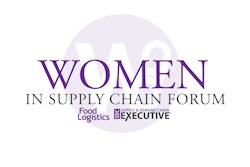
If you want to open a logistics company to operate a freight brokerage, you'll need to decide whether to get a freight broker bond or establish a BMC-85 trust. You must either secure a BMC-84 bond or open a BMC-85 trust to get a freight broker's license so that you can legally operate a logistics business. The Federal Motor Carrier Safety Administration (FMCSA) mandates that prospective freight brokers are bonded or establish BMC-85 trusts as a condition of licensing. Here are the differences between the two options and why freight broker bonds are important for logistics companies.
FMCSA requirements
The FMCSA regulates freight brokers and issues freight broker licenses. The agency has mandated freight brokers to either establish $75,000 BMC-85 trusts or purchase BMC-84 bonds of $75,000 before it will issue freight broker licenses. If you don't open a BMC-85 trust or purchase a freight broker bond of $75,000, you won't be able to secure a license to legally operate your company. Here's how each of these options work.
BMC-85 Trust. A BMC-85 trust is a type of trust that is held by a bank. It must be funded with $75,000 cash that you won't be able to access. Instead, the FMCSA can access the money to satisfy claims that might be filed against you for violating the law or engaging in other misconduct that harms the shippers or carriers with which you do business with. Even if you don't have any claims filed against you, you won't be able to touch the money in the BMC-85 trust as long as you maintain your freight broker license.
Tying up $75,000 is difficult for most businesses because it could otherwise be used for investments or working capital. Many brokers don't have $75,000 they can afford to place into a BMC-85 trust, so they might have to take out a loan to fund the account and pay interest on it. Interest is not paid on the money held in the trust, but the bank will charge maintenance fees to manage the trust.
Freight broker bonds (BMC-84 Bonds). Getting a freight broker or BMC-84 bond of $75,000 is your second option. This is a type of surety bond that protects shippers and carriers when the bonded broker engages in fraudulent business practices or fails to pay them. The bond also serves as a guarantee that the licensed broker will comply with all state and federal regulations and laws.
Unlike insurance, a freight broker bond will not protect against potential liability and is instead meant to protect the FMCSA, the public and the shippers and carriers with which you do business. The following three parties are involved in a freight broker surety bond:
• Principal - Freight broker who is required to get bonded
• Obligee - FMCSA, which requires either the bond or a trust
• Surety - Bonding company that issues the BMC-84 bond as a guarantee of the freight broker's legal compliance and adherence to the provisions of its contracts
While the freight broker bond is $75,000 just like the required amount for a BMC-85 trust, you don't have to pay the entire bond amount upfront to secure a BMC-84 bond. Instead, pay a premium, which is a small percentage of the bond's penal sum of $75,000. The premium will depend on multiple factors considered during the underwriting process and can range from 1-10%, depending on the degree of risk the bonding company determines you pose.
Many freight brokers opt to purchase freight broker bonds instead of establishing BMC-85 trusts. This is because the bonds are flexible and will not tie up a large sum of money. Unless you have a substantial amount of liquidity, you might be better served by securing a bond as opposed to establishing a BMC-85 trust.
Why the FMCSA requires broker bonds or BMC-85 trusts
The FMCSA requires freight brokers who operate in the United States to secure licenses. These licenses must be renewed annually. A licensing condition is to either open a BMC-85 trust and fund it with $75,000 or to purchase a $75,000 BMC-84 bond. Since brokers only have to pay a small percentage of the $75,000 to purchase a bond instead of tying up $75,000 in a trust they can't access, most choose to secure bonds.
Freight broker bonds are meant to protect carriers and shippers that rely on freight brokers. If you don't maintain a freight broker bond or open a BMC-85 trust, you won't be able to get your license to obtain operating authority, which means you won't be able to legally operate your business.
The bonding process
Freight brokers can submit applications to surety companies that issue BMC-84 bonds. A freight broker bond is a form of credit, so the bonding company will send your application through an underwriting process before it will agree to underwrite the bond. The bond company will ask for information so that it can assess your business and personal credit, your company's working capital and financial stability, your experience and whether you have any problems in your history.
If you have great credit, an unblemished history and strong financials, your application will likely be approved. In this type of case, the bond premium rate should be low. If, on the other hand, you have poor credit, a spotty record, and shaky financials, the company might deny your application. If you are approved for a bond with poor credit, you should expect to have to pay 10% or more to secure your bond.
Like your freight broker license, you will have to renew your bond each year. If you improve credit and avoid bond claims, you might secure a lower rate in the future. You'll need to make sure to renew your bond before it expires and make sure you also renew your license each year.
While a freight broker bond doesn't protect against liability, it is a requirement if you want to operate your logistics company and don't want to tie up $75,000 in a BMC-85 trust. Once you purchase a bond and receive your license, make sure to renew them each year and operate the business ethically to avoid bond claims and a potential loss of your ability to operate the company.


















